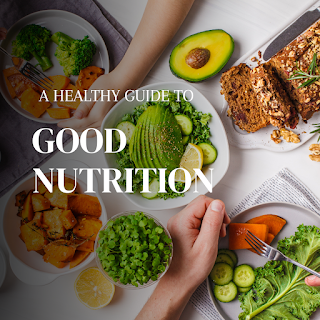It is a common misconception that coconut oil is bad for you. People all over the world are experiencing the benefits of using coconut oil. It is actually one of the healthiest oils you can consume.
Here are the top seven reasons why you should use coconut oil as an alternative to other common cooking oils.
1. Coconut oil doesn't turn to fat in your body.
Unlike many other common oils, like soy (vegetable) and corn, coconut oil won't make you fat. Coconut oil contains medium-chain triglycerides (MCT), which are an easy fuel for the body to burn, without turning to fat. Most other cooking oils and fats contain long-chain triglycerides (LCT). LCT's are usually stored as fat. Since coconut oil is a MCT, it is more easily absorbed and converted to energy quicker.
People in the tropics have relied on coconuts as a traditional staple in their diet for centuries. They consume large amounts of coconut oil every day. Instead of getting fatter, it helps them stay healthy, lean and trim. When they switch from coconut oil to our modern oils, they develop obesity and the health problems that our modern society faces.
Some other people who have known this truth for a long time are people who are in the animal feed business. When livestock are fed vegetable oils, they put on weight and produce more fatty meat. When they are fed coconut oil, they become very lean.
2. Coconut oil increases your metabolism.
Not only does coconut oil convert to energy quicker in your body, it increases your metabolism, which promotes weight loss. Because it boosts your metabolism, it helps your body burn fat more effectively.
Coconut oil may triple your calorie burn. Since coconut oil is a MCT, it is converted to energy so quickly that it creates a lot of heat. In a study published in the American Journal of Clinical Nutrition, MCT's burn three times more calories for six hours after a meal than LCT's.
The February 15, 2005 issue of Woman's World magazine stated that coconut oil is the "underground high-metabolism secret."
This is great news for people who have thyroid problems, since coconut oil improves sluggish thyroids by stimulating the production of extra thyroid hormones. Most other common oils, like vegetable (soy) and corn have been shown to inhibit thyroid function.
3. Coconut oil has omega 3 fatty acids.
Most cooking oils contain omega 6 fatty acids, something we get way too much of in the United States. Our omega 6 to omega 3 ratio should be 1:1 but it is more like 50:1. We need to drastically cut back our omega 6 oils and consume much more omega 3 oils to be healthy. And coconut oil is filled with these healthy omega 3 fatty acids.
4. Coconut oil gives you energy.
Because of the healthy omega 3 fatty acids and the fact that it increases the metabolism, most people that switch to coconut oil feel a burst of added energy in their daily life.
This is because coconut oil is nature’s richest source of medium-chain triglycerides (MCT's), which increase metabolic rates and lead to weight loss. MCT's promote thermogenesis, which increases the body's metabolism, producing energy.
This is because coconut oil is nature’s richest source of medium-chain triglycerides (MCT's), which increase metabolic rates and lead to weight loss. MCT's promote thermogenesis, which increases the body's metabolism, producing energy. Many people with chronic fatigue syndrome and fibromyalgia have found that adding coconut and coconut oil to their diet was helpful to them.
5. One of the best things you can use on your skin and hair is coconut oil.
Coconut oil is one of the best things you can apply directly on your skin and hair. It gives temporary relief to skin problems like rashes. It aids in healing and restoring skin to a younger appearance. It has also been known to help with people who suffer from yeast infections in the skin, as well as many other skin problems.
Not only does it soften and smooth your skin, coconut oil has antioxidant properties that protect the skin from free radical damage. Coconut oil makes excellent massage oil too.
6. Coconut oil has healthy benefits that most other oils do not.
Evidence is mounting that coconut oil has anti-fungal, antibacterial and antiviral effects when both consumed and used topically on the skin.
Most oils oxidize and turn rancid very quickly causing free radical damage in our bodies. Coconut oil is not easily oxidized and does not cause harmful free radical damage like polyunsaturated vegetable oils. Free radical damage is thought to be responsible for many ailments in our body from arthritis to increased susceptibility to cancers.
Coconut oil also helps our bodies absorb other nutrients more effectively, such as Vitamin E.
7. Coconut oil is one of the best oils you can use for cooking.
It has a higher smoke point than olive oil, which means it can take higher temperatures better. There are several healthy omega 3 oils we can choose to consume, such as flax and olive oil, but they don't do well under the high heat we use for cooking. Coconut oil can be used in higher cooking temperatures.
It is harder for coconut oil to go rancid, unlike other cooking oils, which are usually rancid long before you even bring them home. Rancid oils cause free radical damage in the body, which is a leading cause of cancer. Coconut oil is stable for over a year at room temperature.
Because of the misinformation we have been given for years, we have lost out on the benefits that coconut oil has given the people of the tropics for centuries. But now it has been rediscovered! Coconut oil is so effective, it won't be long before we see coconut oil supplements promoted, but you can get the jump on the popular crowd and start consuming and cooking with coconut oil today!

.png)
.png)
.png)
.png)

.png)
.png)
.png)
.png)